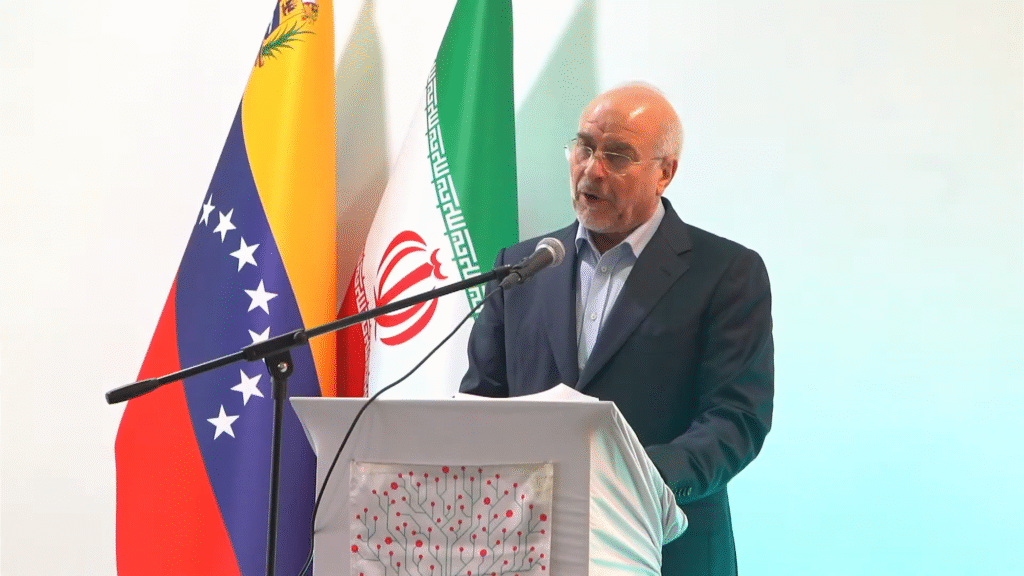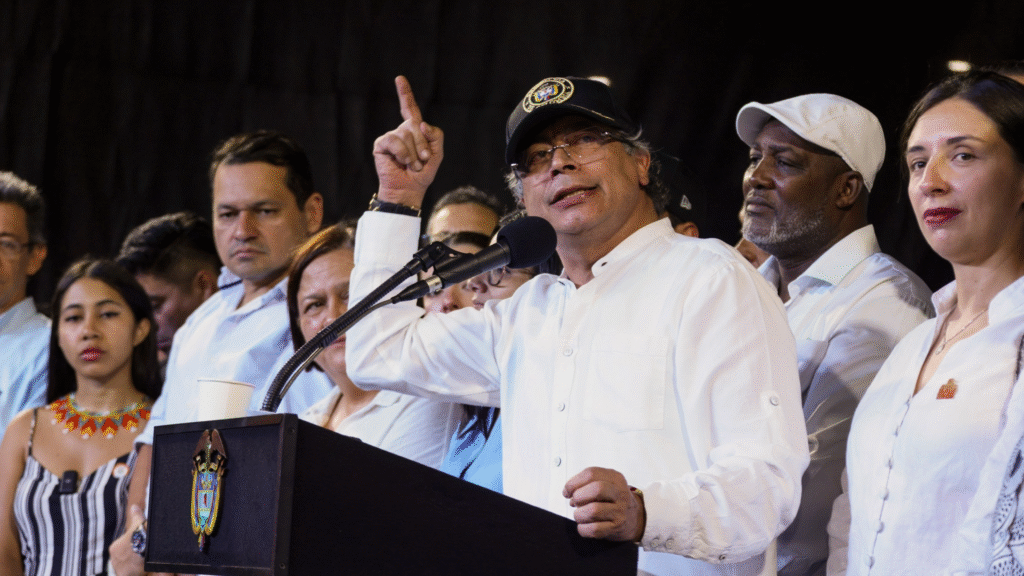Juan Guaido shakes hands with VP Mike Pence in Bogota, Colombia, on Monday, February 25, 2019. The room was filled with supposed humanitarian aid destined for Venezuela. Photo: Martin Mejia/AP
This article has been translated from Spanish by Kawsachun News. Read the original on Mision Verdad.
The headquarters of the United States Agency for International Development (USAID) closed on Monday (February 3). The Washington Post reports that most employees will work remotely, citing an email received by the organization’s workers.
USAID, present in more than 100 countries and with more than 9,000 employees, has a vast history of financing and orchestrating color revolutions and coups in countries not aligned with the United States. It will most likely cease to be the highest body of the federal government to channel “foreign aid.” However, as for U.S. foreign policies and programs to weaken, disrupt, throw into chaos and confusion, and ultimately overthrow revolutionary governments that contest its hegemony, such measures will undoubtedly persist despite USAID’s apparent gutting.
According to Reuters, U.S. President Donald Trump is considering stripping USAID of its independence and placing it under the aegis of the State Department. Secretary of State Marco Rubio has been appointed as interim administrator by Trump.
Historically, USAID has served as an operational arm of the U.S. political establishment. It has been characterized by its creation of support networks that operate independently yet in parallel to U.S. national institutions. Officials point out, in fact, that the totality of the U.S. national security apparatus is based on three pillars: Defense, which is managed by the Department of Defense; Diplomacy, which is managed by the Department of State; and Development, which is managed by USAID.
Although it has operated on various fronts, a unique function of the USAID has been to slowly and very harmfully replace government responsibilities and political parties with networks of NGOs and private companies it supports. Such methods are used to control countries indirectly through soft power and to overthrow governments that don’t rotate around Washington’s geopolitical orbit.
MUSK AGAINST USAID
The closure of USAID’s website on Saturday (February 1), was the first step towards the “reassessment and realignment of American foreign aid” decreed by Donald Trump on January 26. Simultaneously, Elon Musk, tycoon and co-director of the Department of Government Efficiency (DOGE) accused USAID of:
- Funding biological weapons research, including a laboratory dedicated to the spread of the coronavirus.
- Bribing media outlets to “bury the news or defame their detractors.”
- Participating in the production of heroin in Afghanistan and in coups in Haiti, Ukraine, Egypt and other countries.
- Being linked “on multiple occasions to intelligence activities.” Its former director John Gilligan admitted that the agency “was permeated from top to bottom by CIA officials” and explained that “the idea was to infiltrate agents in every type of activity we carried out abroad: governmental, voluntary, religious, any other.”
Then X—formerly Twitter—Musk’s microblogging company, deleted the agency’s account. “USAID is a criminal organization,” he wrote. “It’s time for it to die.” Musk added that the governmental agency was “a nest of radical, leftist, Marxist vipers who hate the United States.”
For his part, Trump told reporters that USAID “has been run by a handful of radical lunatics and we are getting them out […] and then we will make a decision.” He confirmed the freezing of all foreign assistance – for at least three months – to review whether it is aligned with his presidential agenda.
A “SOFT AND EFFECTIVE” TOOL
Political sectors in the United States, especially in Congress, have expressed concern about Trump’s plans for the agency, given that “it could become smaller and more politicized, without the ability to direct its own program.” This focuses, above all, on the competition for global influence that the United States maintains with China. However, the idea of undermining USAID’s independence is not new. During Trump’s first presidential term he attempted to limit its functionality.
Democratic Senator Chris Murphy was eloquent in declaring that “it is a terrible idea to functionally dismantle one of our most effective soft power tools.”
In the case of Venezuela, interference via USAID dates back to the coup d’état carried out against President Hugo Chávez in April 2002. It has been maintained under different formats ranging from color revolutions (2014 and 2017) to the financing of many NGOs under the pretext of human rights violations. It further lends its support to a constellation of media outlets and political organizations, as has been demonstrated by public records.
Masked through its support and training programs for NGOs and political organizations, USAID has served as the operational muscle of the Venezuelan opposition. In this manner, calls for regime change metastasized. Plenty of research has been published on this subject.
Among so many covert USAID operations across the world, the most recent stands out. The agency released hundreds of millions of dollars spent on the framework of the “humanitarian crisis” in Venezuela, a crisis purposefully induced by nearly a thousand economic sanctions illegally imposed on the country by the U.S since 2014. Faced with a decline in the national economy and living standards, USAID then dedicated itself to financing responses to a “complex humanitarian emergency” based on its own biased diagnoses.
Armed with a false pretext, a plan to invade Venezuelan territory was hatched. Likewise, a significant portion of the so-called Guaidó Plan, Washington’s sponsorship of an imposed interim government, consisted of a network of corruption and plundering of national assets. This regime change project had the full endorsement of Trump during his first term as president, as well as USAID.
IS TRUMP REVERSING DIRECTION?
Despite Trump’s support for the plan, a source told the Financial Times that the tycoon himself “considers the [Venezuelan] opposition to be losers” and that “he gave them a lot and they failed. There is no way he will go down that path again.”
In April 2021, a USAID inspector prepared a report in which he “doubts” the motivations of the Republican government in 2019 because the “humanitarian aid” was not implemented under “the humanitarian principles of neutrality, independence and based on needs assessments.” Rather, it responded in part to the Trump administration’s campaign to overthrow President Nicolás Maduro.
Anthony Daquin, a security expert based in the U.S., accused individuals from the US-designated Venezuelan leadership such as Carlos Vecchio, Leopoldo López, Julio Borges and Juan Guaidó of diverting funds granted by USAID, along with dozens of NGOs. The transfers amounted to over $856 million dollars. The analyst further revealed that, in 2019, Vecchio signed an amount with Mark Green, then director of USAID, for $116 million dollars, which was also diverted.
In October of that year, another $98 million dollars was delivered through an alleged “cooperation agreement.” An audiovisual record details that $56 million dollars were given separately to Vecchio and Borges in order to “restore democracy” in Venezuela. Additionally, the former U.S. Secretary of State, Mike Pompeo, declared in 2020 that USAID provided the Venezuelan “interim government” with $200 million dollars.
Foro Cívico, a coalition of NGOs formed around the Venezuelan regime change agenda, played a leading role in the link between USAID and the Washington Office on Latin American Affairs (WOLA). Other organizations were also present, such as: Movimiento Ciudadano Dale Letra, Acción Solidaria, Fetrasalud, Monitor Salud, Observatorio Electoral Venezolano, Academia Nacional de Medicina, Movimiento de Sindicatos de Base (Mosbase), Unión Vecinal along with a host of academics and activists.
USAID also participated in the direct coordination and furnishing of resources for the Venezuelan opposition primary elections held in October 2023 as the starting point of the so-called “electoral route.” This plan was formulated at the end of 2022 by the then assistant administrator for Latin America and the Caribbean, Marcela Escobari, who reiterated the need to increase pressure against Venezuela. She indicated that the agency was focused on the “presidential elections in 2024 and the legislative and regional elections in 2025,” and that the primaries were an opportunity for the opposition to “rebuild unity and regain momentum.”
Hence, the extremist sector led by María Corina Machado, who refused to participate in elections, chose to incorporate the coup plan into the 2024 electoral process. However, the Venezuelan opposition performed poorly compared to the results of the incumbent head of state and candidate for re-election Nicolás Maduro. This only served as a precursor for renewed coup attempts and political violence.
Both the Guaidó Plan and the ”electoral route” did not bear the fruits expected by the U.S. elites because they did not remove Maduro from power. Presently, Venezuela’s opposition has lost its muscle and will for convening and mobilizing themselves and their followers.
It’s unlikely that Trump is reneging on U.S. interventionist policy. Beyond accusations and proof of USAID collaborating with left-wing and progressive movements, the agency was used by the real estate magnate in his previous government. Is the threat of permanently closing USAID just a means to reset the agency’s objectives after evaluating its results on previous occasions?
On the other hand, the extremist wing of the Venezuelan opposition is experiencing a critical moment because its sources of financing are now limited. If the US agency with the greatest disbursement capacity has turned off the tap and business elites have abandoned their conspiratorial strategies against the Bolivarian Revolutionary Government, there do not seem to be any solid alternatives to their traditional modus operandi: extracting resources from the U.S. to sustain its circular economy of regime change and personal profit.
This article has been translated from Spanish by Kawsachun News. Read the original on Mision Verdad.








